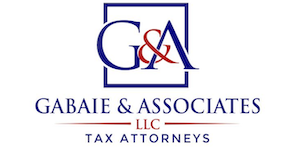What are the main tax relief options available for individuals and businesses?
Tax relief options include several key approaches. The most common is the Offer in Compromise, also known as the fresh start initiative, which allows taxpayers to settle their tax debt. Currently Not Collectible (CNC) status is available for those experiencing financial hardship. Installment agreements come in various forms, including streamlined and partial pay options. For incorrect assessments, audit reconsideration allows the IRS to review previous audits. Additionally, innocent spouse relief protects individuals from joint tax liability with their partners when appropriate.
What criteria determine eligibility for tax relief programs?
Eligibility depends on three main factors: financial status (including assets and equity), the amount of tax liability in question, and special circumstances such as health issues or other factors that might influence the IRS’s decision to grant relief. A thorough evaluation of these criteria helps determine which resolution option best suits the taxpayer’s situation.
How can individuals and businesses determine if they qualify for tax relief assistance?
The most effective approach is consulting with a tax professional who specializes in tax resolution. These experts can evaluate tax liability expiration dates, current financial situations, and income/expense ratios. They also assess asset positions, as the government considers all these factors when determining qualification for settlements or hardship status.
What are common misconceptions about tax relief?
A prevalent misconception is that the IRS automatically settles with everyone. The government isn’t in the business of incentivizing non-payment of taxes. Unlike regular creditors who need court approval, the IRS has broader powers to levy, garnish, or place liens without court intervention. The key is understanding that settlement qualification depends on specific criteria rather than being a universal option.
How does the tax debt negotiation process work?
The process begins with examining the liability and its statute of limitations (typically 10 years for federal taxes). Professionals review the client’s financial situation and compliance history. Once these elements are assessed, a strategic approach is developed to resolve the case with the IRS or state authorities. Success often depends on presenting compelling reasoning for the chosen resolution method.
What should taxpayers consider before pursuing tax relief options?
Current tax compliance is crucial. The IRS and state authorities won’t discuss resolution options without compliance. This means ensuring all required tax returns are filed and current tax obligations are met. For businesses, this includes staying current with federal tax deposits and payroll taxes. Demonstrating compliance shows good faith and increases leverage in negotiations.
How do tax defense firms assist clients with complex cases?
Tax defense firms help navigate various scenarios, from unfiled returns to audit reconsiderations. They work to halt collection actions, reduce liabilities through proper filing, and develop appropriate resolution strategies. Each case requires a unique approach, but every tax situation has a potential resolution path. The key is identifying and implementing the most suitable solution for each client’s circumstances.
